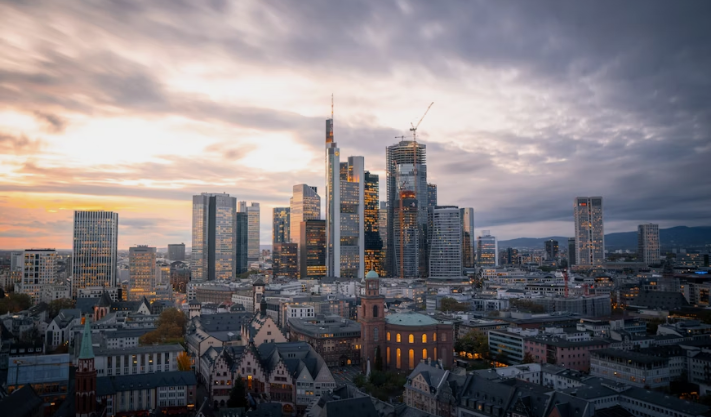Europe’s Business Landscape 2025: Top Trends Shaping Growth
Europe’s business environment is undergoing rapid transformation in 2025, driven by innovation, sustainability goals, and digital acceleration. As economies adapt to changing market dynamics, several key trends are shaping growth across industries. From green technology investments to AI-driven solutions and cross-border collaborations, Europe’s corporate future looks both challenging and full of opportunity.
1. Sustainability and Green Innovation Lead the Way
Sustainability remains a central pillar of Europe’s growth strategy in 2025. With the European Green Deal and carbon neutrality targets, companies are focusing on eco-friendly production, renewable energy, and circular economy models. Major industries—especially manufacturing, automotive, and construction—are investing heavily in cleaner technologies. Nations such as Germany, Sweden, and France are leading in renewable innovations and green startups. Consumers are also increasingly supporting brands that prioritize environmental responsibility, pushing businesses to adopt transparent and sustainable practices.
2. Digital Transformation Accelerates Across Sectors
Digitalization continues to reshape Europe’s business ecosystem. Cloud computing, artificial intelligence (AI), and the Internet of Things (IoT) are driving efficiency, productivity, and smarter decision-making. In 2025, more small and medium enterprises (SMEs) are adopting automation tools and data analytics to stay competitive. The European Union’s Digital Strategy aims to make Europe a global digital leader by ensuring secure data usage, supporting tech startups, and promoting innovation-friendly regulations.
3. AI and Automation Redefine the Workforce
Artificial intelligence and automation are transforming how European companies operate. From logistics to customer service, AI tools are improving accuracy and reducing costs. However, this shift also requires workforce reskilling and upskilling. Many businesses are investing in employee training programs to adapt to new technologies. The AI-driven economy is also opening new job opportunities in data science, cybersecurity, and AI ethics, helping Europe remain globally competitive.
4. Cross-Border Trade and Investment Strengthen
Despite global uncertainties, Europe continues to attract foreign investments and expand intra-regional trade. The EU’s single market offers vast opportunities for businesses to grow beyond borders. In 2025, trade partnerships with Asia and the Middle East are increasing, focusing on technology exchange, clean energy, and advanced manufacturing. The post-Brexit environment has also stabilized, with stronger UK-EU business cooperation returning in several sectors, including finance and healthcare.
5. Startups and Innovation Hubs Flourish
Europe’s startup ecosystem is booming in 2025, with major innovation hubs like Berlin, Amsterdam, Paris, and Stockholm leading the charge. Fintech, healthtech, and cleantech startups are attracting record venture capital funding. Governments are supporting these ventures through tax incentives, digital infrastructure, and funding programs. Collaboration between corporations and startups is also helping traditional industries adopt cutting-edge technologies faster.
6. Focus on Resilience and Supply Chain Security
The lessons from global disruptions have encouraged European firms to strengthen their supply chains. Businesses are localizing production and diversifying suppliers to reduce dependency on external markets. Advanced logistics and smart warehousing solutions are also being used to enhance efficiency and reduce risks.
Conclusion
Europe’s business landscape in 2025 is characterized by innovation, resilience, and sustainability. As companies embrace digital tools, green initiatives, and global collaboration, the continent is set to maintain its position as a hub of intelligent growth. The focus on technology, talent, and transformation ensures that Europe’s economy continues to evolve and thrive in the years ahead.

